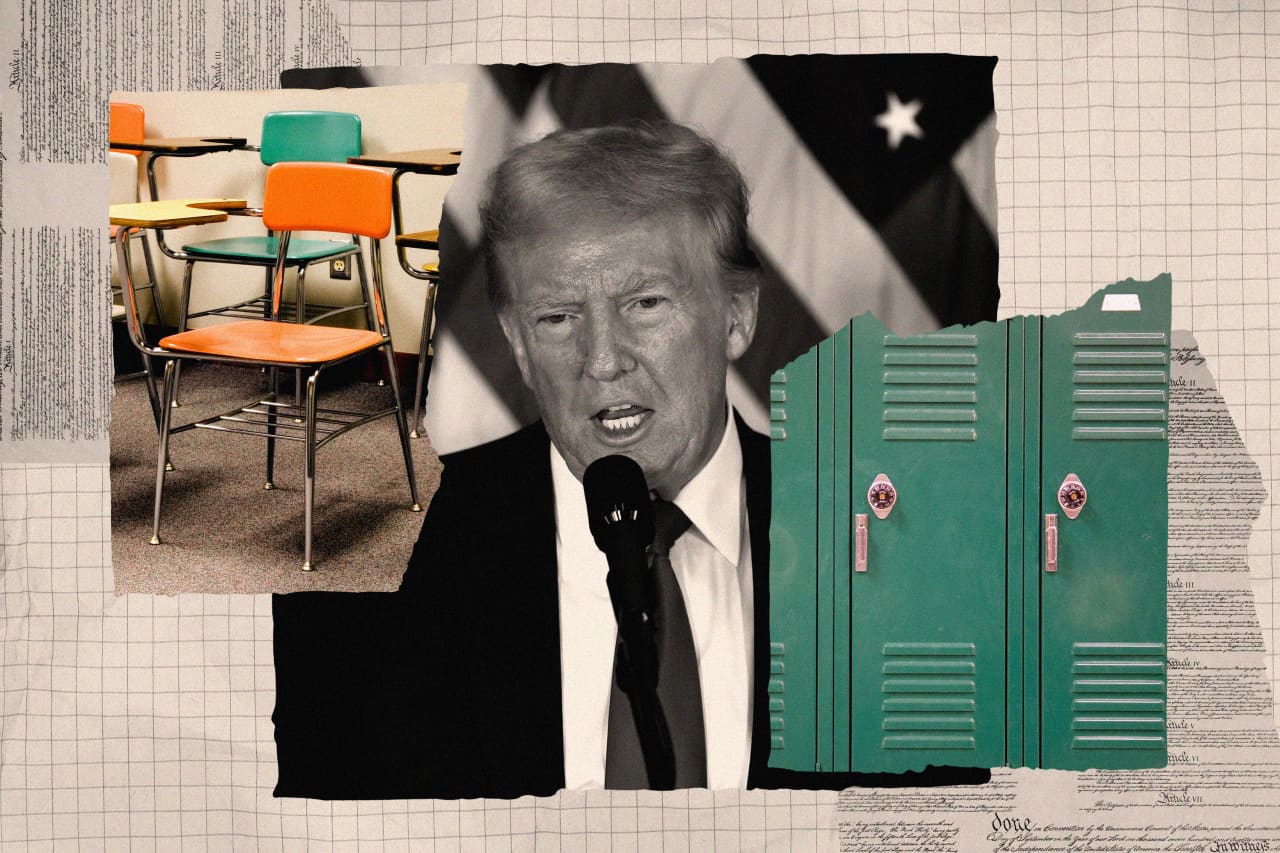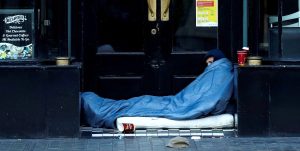Donald Trump is vowing to take what he describes as wokeness out of America’s schools if he is elected president . He and allies have a road map for doing so.
The former president has said he would deploy federal powers to pressure schools and universities that he considers to be too liberal. One strategy that he has described would launch civil-rights investigations of schools that have supported transgender rights and racial diversity programs. Another tactic would use the college accreditation system, which sets standards for schools, to scale back diversity goals.
Conservatives have previously decried the use of federal agencies—sometimes derisively called the “deep state”—by Democrats. Now, Trump and his allies have suggested they want to turn the tables.
“We oppose the deep state, but what if the deep state were our guys?” said Max Eden, a senior fellow at the American Enterprise Institute, a conservative think tank.
Unlike many of Trump’s other education proposals—including punishing schools that require vaccines, creating an anti-“woke” online university , and instituting “universal school choice” —these new tactics wouldn’t require state or congressional cooperation. They would likely kick up a legal fight, from school systems, universities and LGBTQ advocates, among others.
In speeches, Trump has also repeatedly pledged to abolish the Education Department.
Trump representatives pointed to his campaign website when asked for further details.
His opponent, Vice President Kamala Harris , has said she would give priority to expanding access to preschool and making college more affordable.
Critical race theory targeted
“Our public schools have been taken over by the radical left maniacs,” Trump said in a campaign video earlier this year. “We will cut federal funding for any school or program pushing critical race theory.” Conservatives have used the term “critical race theory” as a catchall for liberal ideas about race .
Trump’s platform promises to investigate “any school that engages in race-based discrimination,” though it doesn’t specify which programs he would target.
Several common practices in schools might be subject to scrutiny, said R. Shep Melnick, a professor at Boston College who has studied civil-rights law. Those could include initiatives focused on helping Black or Hispanic students succeed in class; diversity offices that cater mainly to nonwhite student groups; and lessons on white privilege.
Since last year’s Supreme Court decision banning affirmative action in college admissions, conservatives have brought lawsuits against race-conscious access programs that they say discriminate against white and Asian people.
The threat of an investigation can be as effective as an actual inquiry, according to legal analysts. A few high-profile cases could cause many institutions to change their practices.
“There’s a chilling effect here that cannot be understated,” said Jasmine Bolton, a former civil-rights lawyer in the Biden administration’s Education Department.
‘Transgender insanity’ and Title IX
The Biden administration has interpreted Title IX —the 1972 law that bars sex-based discrimination in educational institutions—to protect transgender people, too. (This rule has been halted by courts in much of the country.)
By contrast, Trump has criticized what he describes as “transgender insanity” in schools. He has suggested that he would flip the Biden interpretation of Title IX to say that certain accommodations for transgender people would amount to sex-based discrimination. Trump’s campaign site says he would use the law to bar “men from participating in women’s sports.”
In 2020, the Trump administration threatened to pull federal funding from some Connecticut schools over a policy allowing transgender girls to play on female sports teams. Upon taking office, the Biden administration dropped the effort.
Sarah Parshall Perry, a former Trump administration Education Department official and a legal fellow at the Heritage Foundation, said a Title IX violation could occur “when we find biological girls” losing access to “privacy or private spaces,” such as when transgender students use bathrooms or locker rooms aligned with their stated gender identity.
Accreditation as a ‘secret weapon’
Conservatives have criticized accreditation agencies—which set standards for colleges and control access to federal student-aid dollars—as being meddlesome, particularly in campus diversity initiatives.
The agencies are granted recognition by the Education Department, with the help of an advisory committee. Some have called on schools to close gaps in minority graduation rates, or explicitly support the concept of equity.
Trump has signaled intentions to give schools more wiggle room on diversity efforts by upending that accreditation system, a tactic he has called his “secret weapon.” Analysts have said such a move could include stripping recognition from some agencies, approving more alternatives, or loosening their watchdog mandates.
Michael Poliakoff , a member of the accreditation advisory committee, and head of the conservative-leaning nonprofit American Council of Trustees and Alumni, called accreditors “intrusive” and “micromanaging” and said they have grown overly prescriptive.
Poliakoff’s group served on the advisory board of the Heritage Foundation’s Project 2025, considered by many conservatives as a blueprint for the next administration , although Trump has disavowed it.
The Education Department under Trump limited accreditors’ oversight authority in 2019, including by allowing colleges to get approval from accreditors outside their regions.
Legal fights ahead
A new Trump Education Department might face legal hurdles. The Supreme Court recently stopped giving agencies, such as the Education Department, broad leeway in interpreting federal law . Future high-court decisions on transgender rights and race-based policies could affect how the next administration enforces civil-rights law.
Alberto Carvalho , superintendent of the Los Angeles Unified School District, the country’s second-largest, said he is troubled by Trump’s education promises and would be willing to fight them in court. The district receives hundreds of millions in federal dollars.
“We would pursue every opportunity available to us to defend, to protect, to assert the rights of our students,” he said. “I think that we would not be alone in this.”
Write to Matt Barnum at matt.barnum@wsj.com and Melissa Korn at Melissa.Korn@wsj.com



